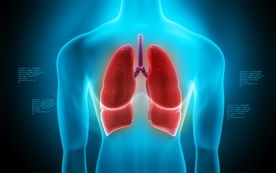Understanding and Managing Constipation
Constipation is a common condition primarily characterized by hard, dry stools and difficulty defecating. Bowel movements may occur only once every few days or even a week. In addition to difficulty passing stools, individuals with constipation may experience symptoms such as bad breath, indigestion, bloating, and lower abdominal discomfort.
Causes of Constipation
Constipation can result from various factors, which can be broadly categorized into organic and lifestyle-related causes:
1. Organic Causes
- Underlying Medical Conditions:
- Cancer
- Diabetes
- Scleroderma
- Central nervous system disorders
2. Lifestyle-Related Causes
- Unbalanced Diet:
- Excessive consumption of meat and insufficient intake of fruits and vegetables.
- Insufficient Water Intake:
- Dehydration can lead to hard, dry stools.
- Changes in Lifestyle Habits:
- Traveling or holidays can disrupt regular bowel habits.
- Prolonged Suppression of the Urge to Defecate:
- Ignoring the natural urge can lead to irregular bowel movements.
- High Mental Stress:
- Stress affects the autonomic nervous system, inhibiting intestinal motility and digestive juice secretion, which can result in indigestion and constipation.
Strategies to Overcome Constipation
To manage and prevent constipation, consider the following strategies:
1. Develop Good Bowel Habits
- Maintain a positive mood and establish a regular bowel movement schedule.
- Respond promptly to the urge to defecate to form a conditioned reflex.
- Avoid suppressing the natural urge to defecate.
2. Maintain a Balanced Lifestyle
- Work and Rest:
- Follow a consistent schedule for work and rest.
- Exercise Regularly:
- Engage in abdominal exercises to improve gastrointestinal function.
- Regular physical activity is especially important for sedentary individuals.
3. Adopt a Fiber-Rich Diet
- Increase Dietary Fiber Intake:
- Consume 25-35 grams of dietary fiber daily.
- Focus on fiber-rich foods such as:
- Vegetables
- Fruits
- Whole grains (e.g., wheat, oats, brown rice)
- Potatoes and beans
- Benefits of Dietary Fiber:
- Absorbs water, stimulates gastrointestinal motility, and softens stool.
- Incorporate Wheat Bran:
- Wheat bran, a byproduct of wheat processing, is rich in cellulose, hemicellulose, and pectin.
- Its hydrophilic properties allow it to hold 1.5-25 times its weight in water, promoting a laxative effect.
4. Stay Hydrated
- Drink sufficient water throughout the day to prevent dehydration and support healthy digestion.
Conclusion
Constipation is often a result of poor lifestyle habits and can be effectively managed through dietary changes, regular exercise, and good bowel habits. For persistent or severe cases, it is important to consult a healthcare provider to rule out underlying medical conditions and receive appropriate treatment.







